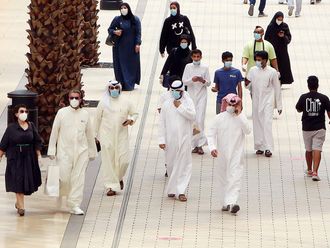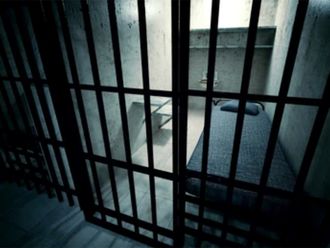Beirut: A leading Syrian opposition figure said on Wednesday that the West, which is seeking better relations with Damascus, has turned a blind eye on what he called Syria's "worsening" human rights record.
Maamoun Al Homsi, a former deputy who was also jailed for five years in 2001 after demanding more political freedom, said the West is no longer pressuring Syria to make political reforms or calling for the release of political prisoners.
"It's very surprising to see the minimum role the international community is playing. It is as if human rights in Syria is now a dropped issue," he told Reuters in an interview.
"The regime sentences us and seems that the international community ratifies it. I think they [are focused] on mutual interests with the regime," he said.
"We are hurt, disappointed and depressed by the international community's silence," Homsi said.
After succeeding his late father in 2000, Syrian President Bashar Al Assad freed hundreds of political prisoners and briefly tolerated political debates that openly criticised Syria's autocratic rule.
But later Al Assad cracked down on critics, jailing major opponents on charges including "weakening national morale".
Al Homsi left Syria after his release in 2006 fearing he would be arrested again in the crackdown on activists. He went to Jordan, but was asked to leave because the authorities did not want to upset its Syrian neighbour. He now lives in Beirut.
Former US President George W. Bush frequently called for the release of political prisoners. Relations between Washington and Damascus have improved since Barack Obama took office succeeded Bush last year.
Crucial player
Western countries now see Syria as crucial to Middle East peace efforts and stabilising nascent democracy in neighbouring Iraq. But diplomats say Obama's plans to send an ambassador to Damascus has been delayed by Syria's refusal to abandon support for Lebanon's Hezbollah group. "Syrian authorities managed to twist the arm of the international community and now the priority goes to security and not human rights," Al Homsi said.
"Today we hear all the officials saying all they want is to stop terrorists and fundamentalists. The regime has kept cards in its hands and depends on its strong relations with Iran to blackmail the international community and impose its demands."
Syrian officials say Western governments focus on cases such as that of Maleh, but ignore Syria's efforts to combat militant Islamists who could pose an international terrorism threat.
Al Homsi said since the West's rapprochement with Syria, not many diplomats were willing to accept letters from the opposition calling for improving human rights in Syria.
Fair trial demanded
Syria has emerged from a five-year diplomatic isolation, with the US and European Union (EU) seeking closer ties with Damascus and pushing for a resumption of peace talks between Syria and Israel.
Syrian authorities have stepped up arrests of politicians and independent figures calling for democracy.
Human rights defenders say there are several thousand political prisoners in Syria who are mostly held without trial.
Among the prominent opposition members detained is Haitham A Maleh, a 79-year-old human-rights campaigner whose incarceration has prompted international.











